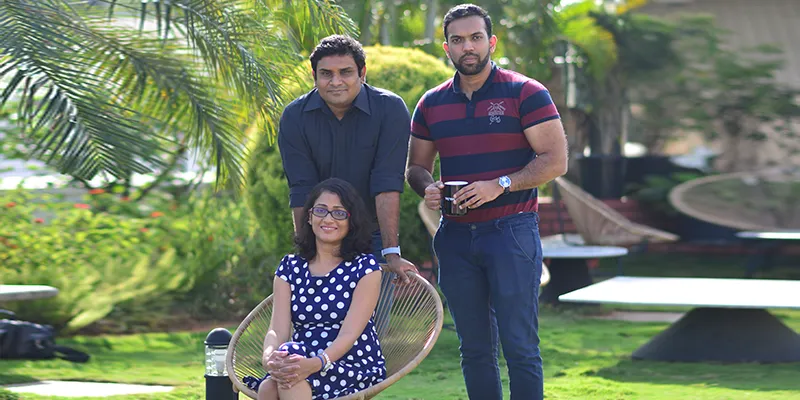Prime Venture invests Rs 6 Cr in FoodyBuddy, a platform that connects foodies with home chefs in the neighbourhood
Prime Venture Partners invests Rs 6 crore in food-network platform FoodyBuddy, making its first investment in the foodtech space.
Food network platform FoodyBuddy on Wednesday raised Rs 6 crore in a pre-Series A round led by Prime Venture Partners. The platform intends to use the funding to expand beyond Bengaluru and further grow the community and network and reach over 1,00,000 home chefs by 2019. Founded in 2015 by Ex-Zynga colleagues Rachna Rao, Anup Gopinath and Rachna's husband Akil Sethuraman, FoodyBuddy began piloting its operations only in 2017.
"Akhil and I were one of those couples who loved to eat but never had the time to cook. So the craving for good quality home-cooked meals was a constant in our lives. It was during this time that I thought why not build a platform that gave me the freedom to choose and get great quality home-cooked food from my neighbourhood," says Rachna.
This led to the birth of FoodyBuddy, a platform that brings great home chefs and foodies together. But the focus of the platform is on the supply or, rather, the home chefs. Rachna explains that you can be anyone who loves to cook and choose to cook any amount of servings.
"You can cook for two or for 20. The idea is an individual who has a love for cooking can express their love for food in any way they choose," adds Rachna.
Speaking of why they chose FoodyBuddy to make the first investment in the foodtech space, Amit Somani, Managing Partner, Prime Ventures, says,
"While FoodyBuddy may fall in the larger foodtech segment, it isn't a regular logistics and operationally-driven foodtech startup. FoodyBuddy is more about the community they are building and working with the home chefs. The focus is bringing together home chefs and foodies within a neighbourhood together. It is the trust factor that automatically comes in. You are getting a home-cooked meal from your neighbour."

How does the platform work?
The platform has two sides - the Foodie and the Buddy (home chef). While the customer sees the different cuisines (over 1,000 different kinds of food) on the platform, the home chef has complete control on what the customer sees. The Buddy gets to decide the preparation time, the amount of plates or servings, menu and the price of the food made.
Unlike the older companies that built a logistics model, FoodyBuddy brings a twist: while it helps connect the Buddy and the Foodies in a neighbourhood, the packaging and delivery is to be managed by the home chef. "It depends on the number of servings the home chef chooses to make for the meal. But the packaging and delivery at the moment is managed by the home chef," says Akil.
The idea is getting fresh home-cooked meal delivered from someone you trust. Currently, FoodyBuddy has been focussing on residential complexes and has residents from more than 100 apartment communities of Bengaluru on the platform. The team claims to have sold over 250,000 meals across 20,000 households so far.
While the pricing and charges are decided by the home chef, the platform takes a commission of anywhere between five and 10 percent. FoodyBuddy provides home chefs with flexibility and an easy-to-use interface to create and sell what they want and when they want it. Customers can even rate the food and the chefs on the platform. The chefs, on the other hand, can have conversations with foodies separately.
Why FoodyBuddy?
FoodyBuddy's goal to build a community through food attracted Prime Venture Partners. Amit explains:
"For me, the first instinct looking at a foodtech platform was - don't touch it! But the more I looked at what the team was building and after multiple conversations over six months, we realised this was more about building a community. It is more about the conversations around food that people can have. It is about bringing in a strong supply and neighbourhood focus. Since the food on the platform is being bought and sold between neighbours, there is a high degree of trust in the platform that the buyers are getting reliable, high-quality food."
Apart from its neighbourhood focus, the team is also building a private kitchen, where the home chef can create a network of foodies whom they choose to have conversations and engagements with. "The chef can invite people, choose to sell different kinds of food and take requests from the foodie," says Anup.
According to a study by the National Restaurant Association of India, the home chef is pegged at Rs 408 crore. FoodyBuddy believes they can touch scale by just working on the tech aspects.







